How Safe Is Costa Rica?
Costa Rica has become one of the most popular expat and digital nomad destinations in Latin America, known for its natural beauty, relaxed lifestyle,...
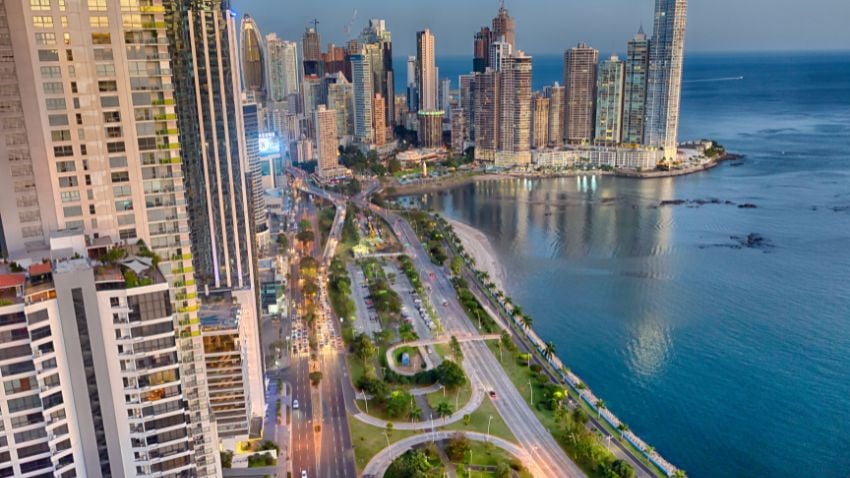
9 min read
So you've finally decided to expatriate to Panama. Now, what are the steps to getting a Panama Visa and Residency? In this article, we're going to cover the top four visas for expats and break down everything you need to know about moving to Panama.
Panama is a great expat destination. While technically, they have their own currency, the Panamanian Balboa, which is pegged at par with the USD, they mostly use American dollars, so you don't have to worry as much about currency conversion. Panama's GDP is ranked top 8 of the 33 Latin American nations, which makes it an appealing country to do business.
Panama, with its warm climate, friendly people, and diverse landscapes, has emerged as a top destination for foreigners seeking residency in Central America. Whether you're considering retirement or work opportunities, Panama offers a range of visas catering to different needs. In this article we're going to talk about the top 4 visas to consider for moving to this beautiful country, along with some compelling reasons, activities, and information about healthcare and banks.
Moving to Panama is an exciting venture, and understanding the top four visas can significantly ease the immigration process. The residency visa (Friendly Nations Visa and the Pensionado Visa) and reforestation visa program are among the most popular pathways to obtain residency status in Panama.
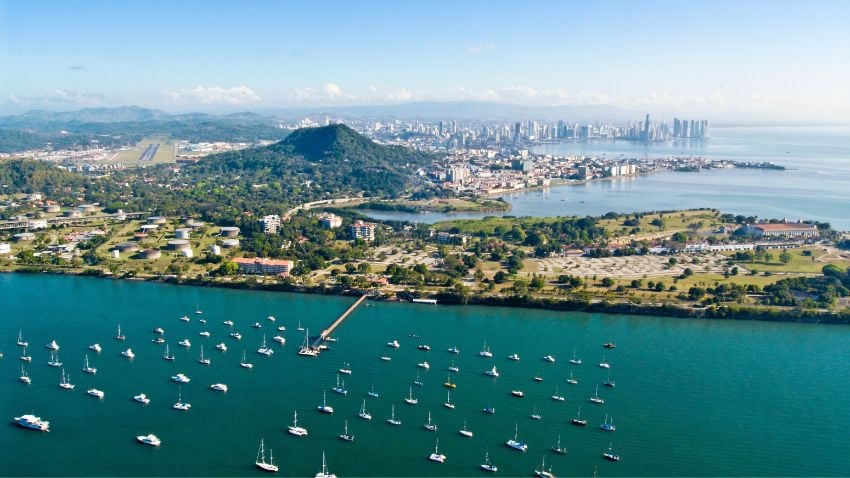
If your company generates income outside of Panama, it is not subjected to tax on its income
Property taxes are relatively low, ranging from 0.5% to 1%, capital gains tax is zero, and if foreign-sourced, it can be legally reduced to zero. They do have an excise tax of 7% on all nonessential purchases, and luxury taxes of 10% to 15% are applied to hotel stays, alcohol, and tobacco.
Most importantly, Panama is considered a "tax haven" as it is a territorial tax system. What this means for Panamanian residents is that any money they earn overseas is not subject to Panamanian income tax. However, if you do make your living inside of Panama as locally sourced income, you will be taxed accordingly. This is also true for companies in Panama; if your company generates income outside of Panama, it is not subject to tax on its income. Even if your company has income inside Panama, the tax rate you have to pay is considered lower than that in European countries.
Aside from its relaxed tax policy, Panama is a great country to live in. The Panamanian economy has been growing faster than that of any other nation in Latin America. Besides being a safe and beautiful country, Panama allows you to apply for Panamanian citizenship after being a permanent resident for five years.
Panama is also a tropical paradise, with incredible beaches and lush rainforests filled with tens of thousands of different plants and hundreds of different mammals and birds, making it a great country to explore and enjoy.
You can go sightseeing and hiking in the dense tropical rainforest, witness the Panama Canal miracle, or even enjoy some time at the tables in one of Panama City’s many casinos. And with tons of influences from the mix of cultures that make up the Panamanian melting pot, Panamanian cuisine offers a tremendous variety of exciting dishes. You can find everything from ceviche and various seafood dishes to hearty stews, empanadas, fresh vegetables, and a lot more.
The residency visa is a general category that covers various subtypes, including the Friendly Nations Visa and the Pensionado Visa. To apply for this visa, individuals must visit the immigration office with their valid passports, a background check, and other supporting documents, demonstrating their financial stability and clean criminal record.
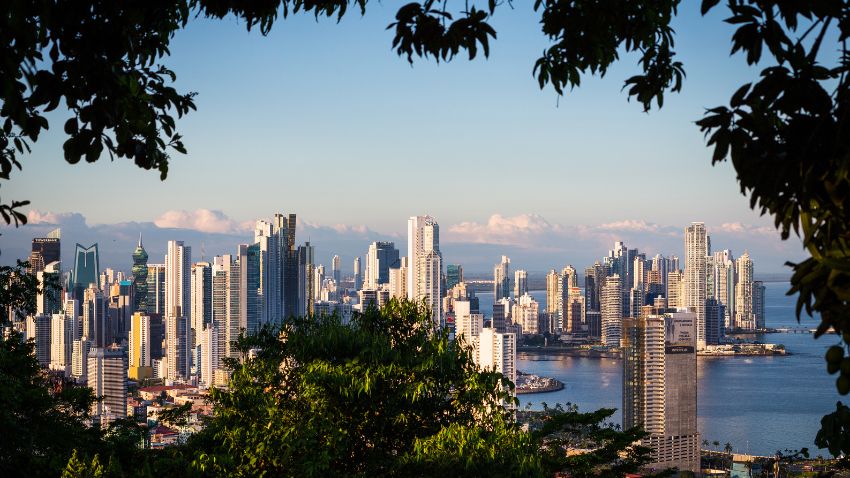
The Panama Friendly Nations Visa is offered to citizens of 51 countries to enjoy the Panama City Skyline from Ancon Hill
For those looking to work or start a business in Panama, the Friendly Nations Visa is an ideal option. It grants residency to individuals with economic solvency and offers a fast-track route to permanent residency.
The capital city, Panama City, is a thriving metropolis with a dynamic job market and a hub for international businesses. Additionally, Panama's strategic location makes it an excellent base for entrepreneurs looking to explore opportunities in other Central American countries.
The Panama Friendly Nations Visa is offered to citizens of 51 countries, including North America, South America, and Europe (as well as a few other select countries like South Africa and South Korea). Here is a list of countries:
|
Andorra |
Austria |
Belgium |
||
|
Canada |
Chile |
|||
|
Denmark |
Finland |
|||
|
France |
Great Britain |
Hong Kong |
||
|
Israel |
Japan |
|||
|
Liechtenstein |
Lithuania |
|||
|
Netherlands |
New Zealand |
Northern Ireland |
||
|
Norway |
Poland |
|||
|
Korea |
San Marino |
Slovakia |
||
|
South Africa |
Sweden |
|||
|
USA |
Take note that in order to qualify, you need to have an employment contract with a Panamanian company or own property in Panama valued at $200,000 USD.
Alternatively, you may also make a fixed-term deposit of $200,000 USD in a Panamanian bank. The nice thing about this visa, if going the property route, is that you can own it inside a structure like a Panama S.A. or a Panama Private Interest Foundation.
The Panama Friendly Nations Visa offers provisional residency for two years. Once the first two years are up, you can then apply for permanent residency.
Requirements for the Panama Friendly Nations Visa include:
A certificate of good health signed by a doctor;
Criminal background checks from the last country you have lived in for the past two years;
Proof of employment or investment;
Eight passport-size photos;
Copies of your passport and secondary ID, such as a photo card, health card or driver's license.
*Legal Fees and additional expenses are not included in these investment options.
Another option for individuals looking to move to Panama is the Panama Qualified Investors Visa. This program, created by Executive Decree 722 in 2020, enables an individual to become a resident of Panama by investing $300,000 USD in Panamanian real estate, purchasing $300,000 USD worth of securities in the Panamanian stock market, or by making a $750,000 USD one-time deposit with a Panamanian bank. The standards for the Qualified Investors Visa are significantly more rigorous than those of the Panama Friendly Nations Visa, as they require a much larger investment. The advantage of this program is that it is open to citizens of all nations.
Documents required for this visa include :
Eight (8) passport-size photos;
A background check showing no criminal record;
A copy of your passport;
A certification of invested or deposited funds;
Bank statements (either foreign or Panamanian) that demonstrate proof of the invested funds.
You also have to pay an application fee of $5,000 USD to the National Immigration Service and $5,000 USD to the Panamanian National Treasury. There is an additional fee of $1,000 USD above the age of 12. Each dependent will pay in Government Fees $1,000 USD in favour of Tesoro Nacional and $1,000 USD in favour of Servicio Nacional de Migracion, meaning a total of $2,000 USD per dependent. For example, if you are the main applicant and are applying with your spouse and two children, the total fees will be $14,000 USD paid out with the application.
*Legal Fees and additional expenses are not included in these investment options.
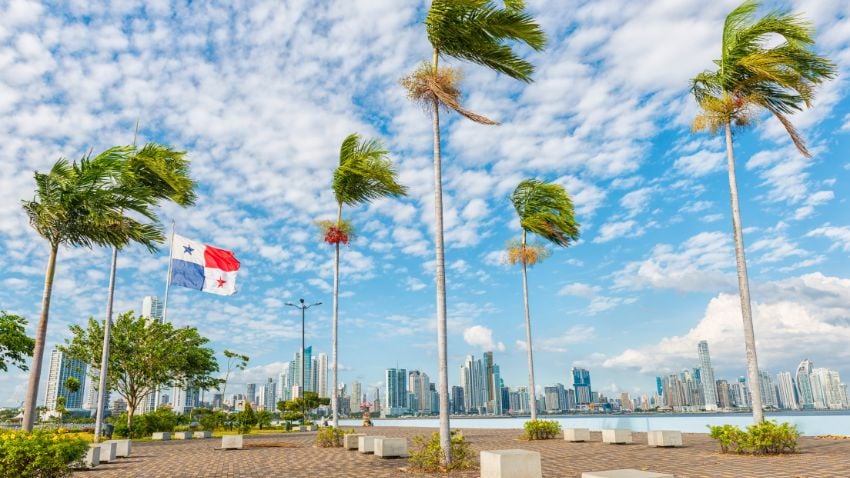
The Pensionado Visa is perfect for retirees to live the best that Panama has to offer
The Pensionado Visa is highly favoured among retirees looking to settle in Panama. This visa is designed for individuals aged 18 and above who can show a steady income from a foreign source, like a pension or retirement fund.
With its affordable cost of living and vibrant expat community, Panama has become a top choice for retirees from around the world. Cities like Panama City, Boquete, and Coronado are particularly popular due to their excellent healthcare facilities, scenic beauty, and numerous recreational activities. As a Pensionado, you'll enjoy discounts on transportation, entertainment, and healthcare services.
The Pensionado Visa is designed for retirees, but it is open for anyone with a minimum income of at least $1,000 USD per month and 18 years of age with a guaranteed income, so employment or business income does not qualify. You need to have income from an annuity, a government or business pension, or some other guaranteed source for life. And if you have any dependents, then you need an additional $250 USD in income per dependent.
It is important to understand that while the Pensionado Visa offers you permanent residency, it is not a pathway to citizenship. On the plus side, you only need to visit Panama 1 day every 2 years.
In order to apply for the Pensionado Visa, you must first enter Panama on a normal tourist visa.
Visa requirements :
Certificate of good health from a doctor in Panama;
Proof of Income;
Criminal record check;
Proof of pension or another source of guaranteed income.
One of the benefits of retiring in Panama is that you get substantial discounts on a number of consumer goods and purchases. These discounts are available to all Panamanian residents who are 55+ for women or 60+ for men, regardless of their visa.
Panamanian seniors receive discounts on medicine, dental bills, hospital services, interest on loans, airline tickets and other forms of transportation, and a lot more. Savings typically range from 10% to 50%.
Here is a summary of the benefits you would be entitled to:
One-time Duty tax exemption for household goods up to a total of $10,000;
Duty exemption for importing a new car every two years;
50% off entertainment anywhere in the country (movies, concerts, sports);
30% off bus, boat, and train fares;
25% off airline tickets;
50% off hotel stays from Monday through Thursday;
30% off hotel stays from Friday through Sunday
25% off at restaurants;
15% off at fast-food restaurants;
15% off hospital bills (if no insurance applies);
10% off prescription medicines;
20% off medical consultations;
15% off dental and eye exams;
20% off professional and technical services;
50% reduction in closing costs for home loans;
25% discounts on utility bills;
15% off loans made in your name;
1% less on home mortgages for homes used for a personal residence.
*Legal Fees and additional expenses are not included in these investment options.
Related content: The Basics Of How To Get A Second Passport Or A Second Residency
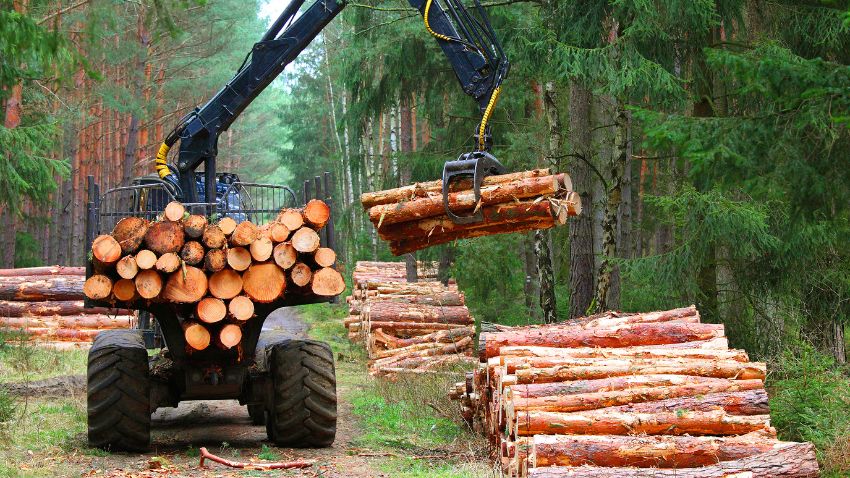
The essence of the Reforestation Visa is that you purchase five hectares of land and then hire a management company to plant trees on it
For nature enthusiasts and investors, the Reforestation Visa presents a unique opportunity. By investing in an approved reforestation project, you can obtain residency for yourself and your family. This visa not only offers the chance to live in the beautiful countryside of Panama but also contributes to environmental conservation efforts. Regions like the Chiriqui Province and the Azuero Peninsula offer picturesque areas with vast natural beauty, making them perfect places to invest in reforestation projects and secure your residency.
The essence of the Reforestation Visa is that you purchase five hectares of land and then hire a management company to plant trees on it. You own the land and can even harvest the trees when the time comes. The benefit to this visa is that your investment only costs $80,000 USD or $100,000 USD, depending on which type of Reforestation Visa you get, and you will be able to sell the timber when it is fully grown. You also don’t have to pay any property taxes on the land which you are helping to reforest, and you are also exempt from any capital gains taxes stemming from this project.
Panama's commitment to environmental conservation is evident through its reforestation visa program. This visa allows investors to obtain residency by investing in reforestation projects in Panama. To qualify, applicants must invest in an approved reforestation company and meet specific investment requirements. This initiative not only grants residency status but also supports Panama's environmental goals.
The first requires an investment of at least $80,000 USD in a certified reforestation project, purchasing a minimum of five hectares of land. This will grant you five years of residency without an option to extend the process and is not a path to Panamanian citizenship or permanent residency.
The second Reforestation Visa involves an investment of at least $100,000 USD in a similar project. With this slightly larger investment, you get temporary residency for two years, and then you are granted permanent resident status. This is a path to citizenship, as you can apply for citizenship after five years as a permanent resident.
The third Reforestation Visa is the express path. With this option, you invest $350,000 USD in a reforestation project that has been approved by the Panamanian government. In exchange, you become a permanent resident of Panama within 30 days and with a path to citizenship after five years as a permanent resident.
Keep in mind that in addition to purchasing the land, you must also hire a management company to do the reforesting and look after your land. Still, the reforestation investment will tie up significantly less of your capital than other options. You can feel good about helping restore the Panamanian rainforest, at least until it is time to cut down the trees again and profit from your investment. Or let them grow if you want. It is your investment, after all. In addition to not tying up a lot of your funds, you do have a reasonable prospect of profit with this investment, given the steady increase in the price of timber we have seen over the last several decades.
Required visa documents:
A clean criminal record check;
Proof of reforestation investment in excess of minimum value;
Passport photo;
Copy of your passport.
*Legal Fees and additional expenses are not included in these investment options.
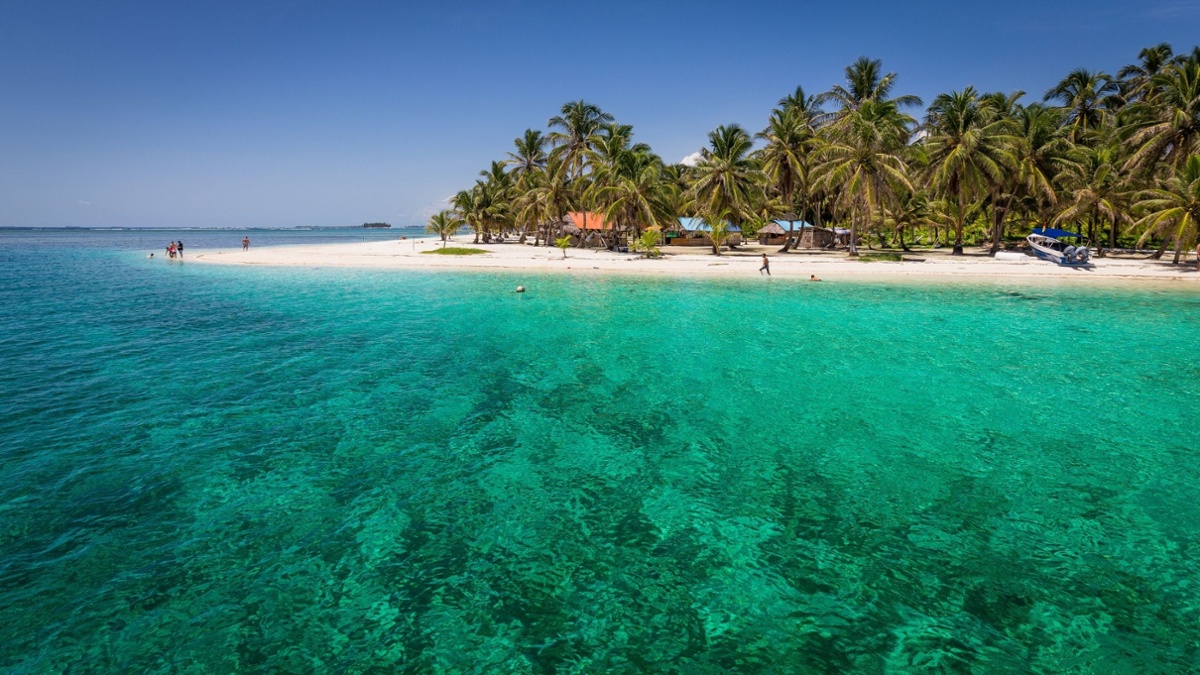
The third Reforestation Visa is the express path to citizenship after five years as a permanent resident
Panama offers investors many choices for entering the country, obtaining residency, citizenship, and overall Panama Immigration. All of these applications can be done at the nearest Panama embassy or consulate. Panama residency can lead to citizenship. Becoming a Panama citizen would give you a Panamanian passport, which is great for those who enjoy travelling as it gives you visa-free access to over 100 countries.
In all cases, engaging the services of an immigration attorney can greatly assist with the visa application process. They can provide invaluable support and guidance, helping applicants navigate the legal requirements and paperwork and necessary resolution of any issues that may arise during the application process.
These four visa options offer diverse pathways for individuals and families to establish residency in Panama, each with its unique set of requirements and benefits. Panama's immigration system aims to support individuals in achieving their goal of living and working in this beautiful Central American country.
If you want the best intel from the expat world, including profitable offshore opportunities, little-known tax-saving strategies, and hard-won insights on immigration, passports, and Plan-B residencies, all delivered to your inbox every single week, then join our daily correspondence, EMS Pulse®. Currently enjoyed by over 84,000 expats and expat-hopefuls worldwide. Fill in the form below to join our newsletter free:

Written by Mikkel Thorup
Mikkel Thorup is the world’s most sought-after expat consultant. He focuses on helping high-net-worth private clients to legally mitigate tax liabilities, obtain a second residency and citizenship, and assemble a portfolio of foreign investments including international real estate, timber plantations, agricultural land and other hard-money tangible assets. Mikkel is the Founder and CEO at Expat Money®, a private consulting firm started in 2017. He hosts the popular weekly podcast, the Expat Money Show, and wrote the definitive #1-Best Selling book Expat Secrets - How To Pay Zero Taxes, Live Overseas And Make Giant Piles Of Money, and his second book: Expats Guide On Moving To Mexico.
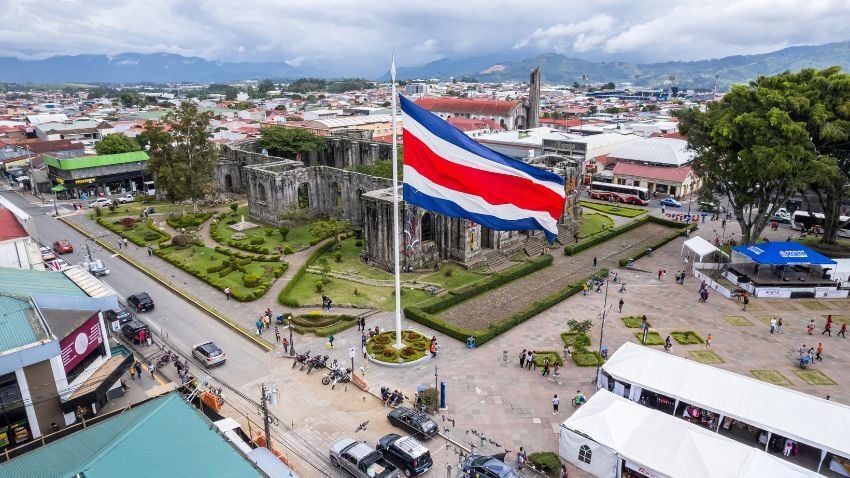
Costa Rica has become one of the most popular expat and digital nomad destinations in Latin America, known for its natural beauty, relaxed lifestyle,...

Mexico remains one of Latin America’s most compelling destinations, especially for North Americans. More than a million expats call it home, and tens...

South Korea is far more than K-pop and K-dramas. It is a country known for outstanding food, from bustling street markets to high-end dining, as well...